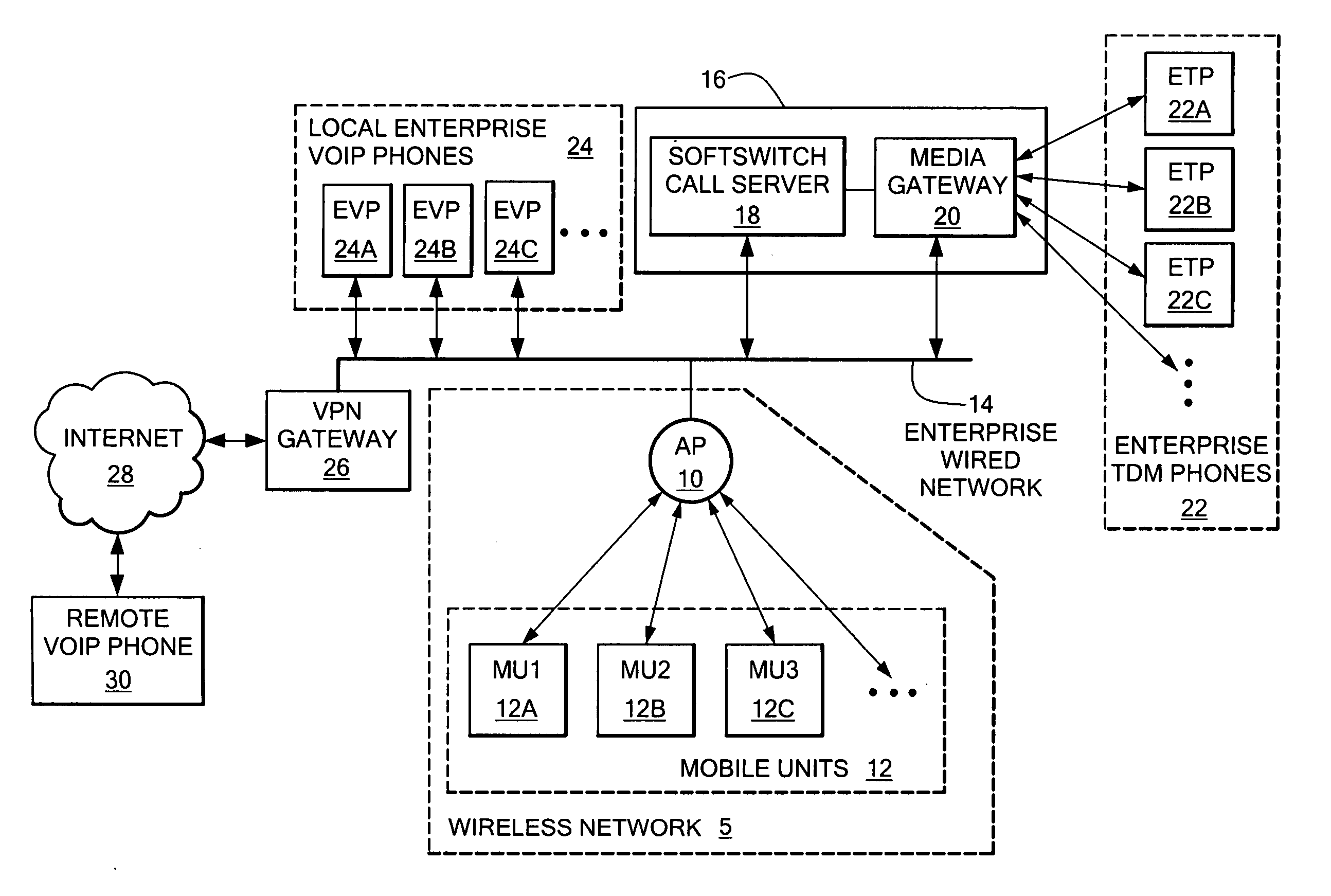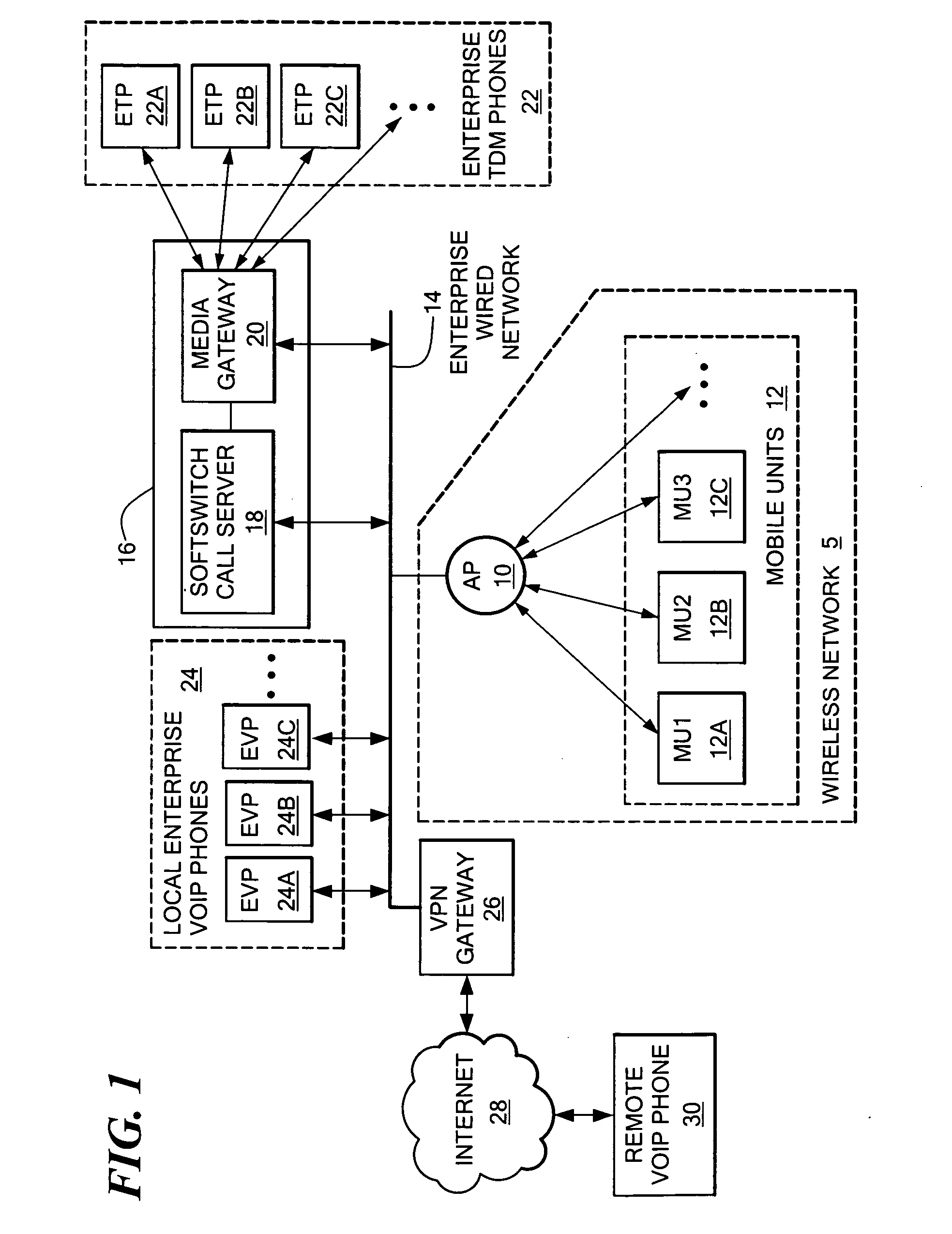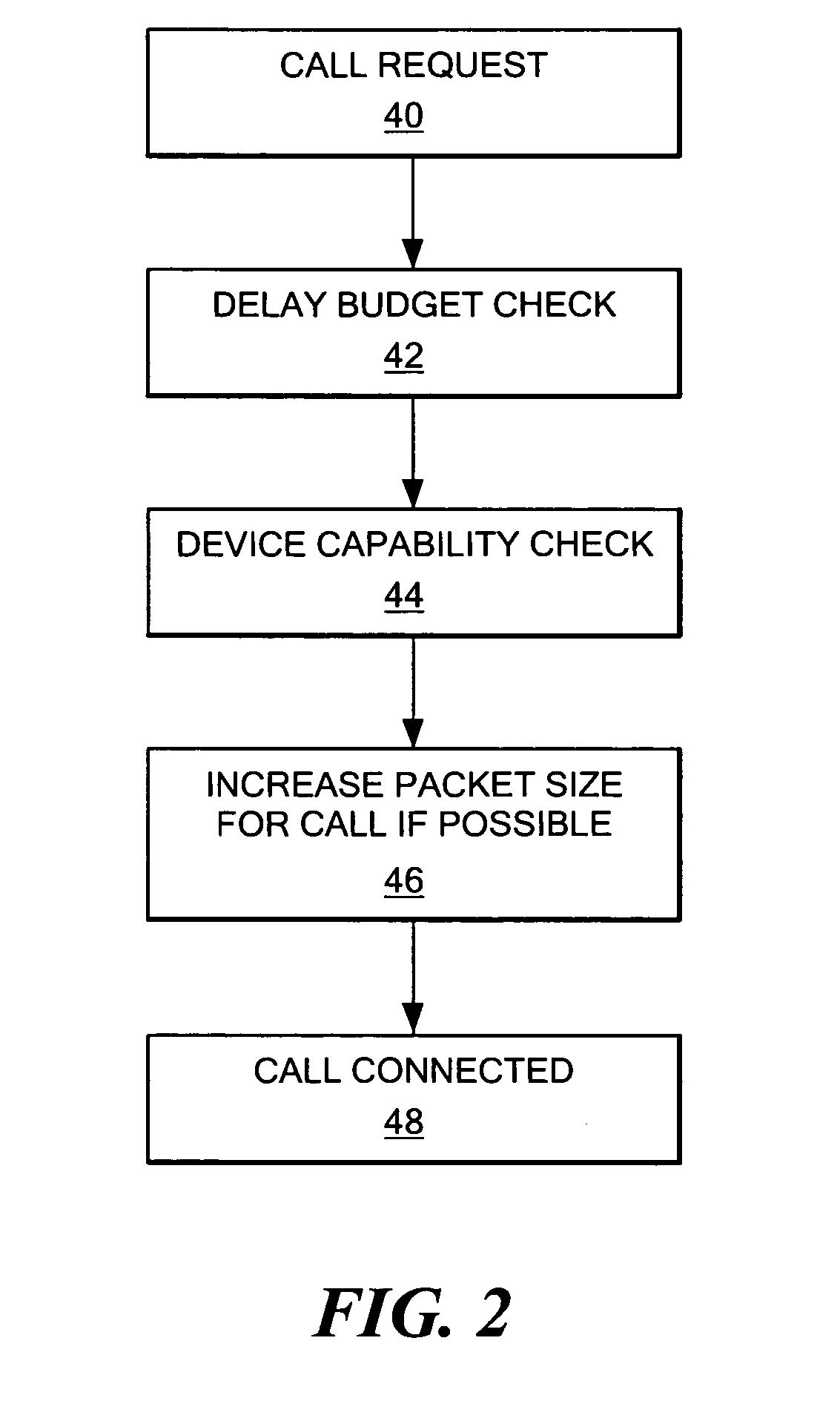System and method for increasing call capacity for a wireless local area network
a wireless local area network and call capacity technology, applied in the field of wireless communication networks, can solve the problems of increasing the number of packets per second, mac protocols add substantial overhead to each data packet, and the existing wlan protocols are not well suited to carrying voice data, so as to increase the call capacity of the access point in the wlan, increase the size of the packet used in the call, and increase the packetization delay
- Summary
- Abstract
- Description
- Claims
- Application Information
AI Technical Summary
Benefits of technology
Problems solved by technology
Method used
Image
Examples
Embodiment Construction
[0012] As shown in FIG. 1, a wireless network 5, such as a Wireless Local Area Network (WLAN), includes an access point device (AP) 10 and a number of mobile units 12, shown for purposes of illustration including mobile units 12A, 12B and 12C. The mobile units 12 may be any specific type of device capable of participating in a phone call over the WLAN 5 through the AP 10, such as WLAN phones or other WLAN devices with IP telephony hardware or software. The AP 10 may be any specific kind or type of WLAN access point operable to support the bridging of packets between the wireless network 5 and the enterprise wired network 14, and the wireless network 5 may be any specific type of WLAN, such as, for example, a WLAN conformant with one or more of the IEEE 802.11 standards.
[0013] The AP 10 interconnects the wireless network 5 with an enterprise wired network 14. The enterprise wired network 14 may be any appropriate type of network, using any appropriate type of communication media and...
PUM
 Login to View More
Login to View More Abstract
Description
Claims
Application Information
 Login to View More
Login to View More - R&D
- Intellectual Property
- Life Sciences
- Materials
- Tech Scout
- Unparalleled Data Quality
- Higher Quality Content
- 60% Fewer Hallucinations
Browse by: Latest US Patents, China's latest patents, Technical Efficacy Thesaurus, Application Domain, Technology Topic, Popular Technical Reports.
© 2025 PatSnap. All rights reserved.Legal|Privacy policy|Modern Slavery Act Transparency Statement|Sitemap|About US| Contact US: help@patsnap.com



